-
 Make the Miraculous Neem Oil a Part of Your Daily Life: Discover the Numerous Uses of Neem Oil and How It Can Give You a Radiant Skin, Lustrous Hair and Overall Health and Wellbeing! (2021)
Make the Miraculous Neem Oil a Part of Your Daily Life: Discover the Numerous Uses of Neem Oil and How It Can Give You a Radiant Skin, Lustrous Hair and Overall Health and Wellbeing! (2021)
-
 Acne: Causes and Remedies! Get Rid of Acne with These 10 Potent Home Remedies for Pimples!
Acne: Causes and Remedies! Get Rid of Acne with These 10 Potent Home Remedies for Pimples!
-
 Is Your Skin Looking Dull and Lifeless? Follow Our Skin Care Tips and Adopt These 5 Healthy Habits and Watch Your Skin Glow Vibrantly (2020)
Is Your Skin Looking Dull and Lifeless? Follow Our Skin Care Tips and Adopt These 5 Healthy Habits and Watch Your Skin Glow Vibrantly (2020)
Why Depression is Dangerous If Untreated?
Depression is one of the common mental illnesses that cause feelings of emptiness, hopelessness and sadness. It affects everything you do in day to day life from eating, sleeping, health, concentration, relationships and career. Also, it is not a condition where one can quickly recover like in case of stomach bug or cold. To begin with, many of them with depression feel that they are just sad and this feeling will go away in some time. However, in depression, the constant feeling persists and does not go away without external help and support. Hence, it is very important to seek help from a professional therapist who can treat your trauma in a safe environment.
5 Symptoms That Tell You Are Depressed
There are some people who generally ignore their Depression but one thing we have to keep in mind that it is not an ordinary sickness. It will make you empty from inside. So treating this sickness should be on top priority. Many don't understand the exact meaning of depression so here we will be discussing 5 symptoms which are common between persons with depression.
1. Lost Interest
Withdrawal or losing interest in activities that you would have otherwise looked forward to like hobbies, spending time with friends, sports etc is a tell-tale sign of depression.
2. Anxiety and Irritability
Depression and anxiety go hand in hand. The symptoms include rapid heart rate, heavy sweating, nervousness, muscle twitching, trouble in thinking clearly about things. Irritability, escapist behaviour or misplaced anger is usually noticed in men with depression.
3. Feeling Hopeless
Having a helpless or hopeless outlook is one of the most common signs of depression. Hopelessness thoughts revolve on expectations like you cannot change and you will continue to live badly.
4. Reckless Behavior
A depressed person shows escapist behaviour like reckless driving, compulsive gambling, dangerous sports or substance abuse.
5. Self-Loathing
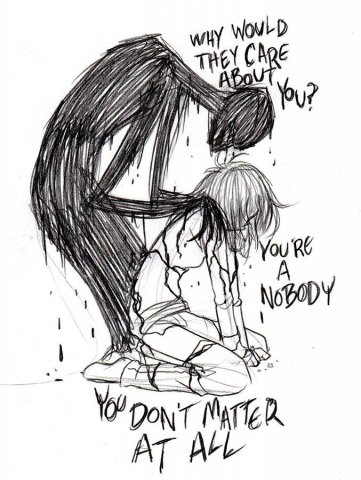
Self-loathing is a thought where a person feels that he/she is not good enough. Self-loathing at severe levels is a sign of depression. Depression makes it easier for a person to think about his/her inadequacies.
Seeking Professional Help
Depression is a debilitating condition, but there are several effective treatment options available now that can ease the symptoms. If you are in a depressed mood for more than 2 weeks that is interfering in your day to day functioning along with suicidal tendencies then it is recommended to consult a mental health professional. The treatment option varies from one person to another as there is no single treatment that is perfect for all. It is important to coordinate with your professional to tailor the treatment option to meet your requirements.
Types of Theraphy
- Cognitive/Behavioral Therapy: This therapy is quite effective to diffuse extremely negative thoughts and over a period of time, it changes the perspective of the depressed person on how he/she sees the world. The therapy is as good as antidepressants and helps those with mild/moderate depression. The evidence also reveals that it prevents depression relapse, as the person will continue to use the skills learnt during therapy. As the situation is unique to each person, the decision on how to use this therapy must be decided by the professional and the patient together.
- Psychodynamic Therapy: This is a holistic therapy mainly focusing on the patient’s perspective. It explores the patient’s deep-seated urges, desires and needs. The therapists help them to find a definite pattern in their thoughts, beliefs and emotions, which helps them gain self-awareness. There are different types of Psychodynamic Therapy – Brief Psychodynamic Therapy, Psychodynamic Family Therapy, and Psychodynamic Music/Art Therapy,
- Interpersonal Therapy: This therapy focuses on the relationships of patients with other people. The aim of the therapy is to help them communicate better and address problems that are responsible for their depression. The therapist will not only help the patient identify the areas that are contributing to depression, but also help them deal with it.
- Medication: This is also part of the treatment program. Some may have to use it for the long term while a few for a short time. Tricyclic antidepressants, Serotonin-norepinephrine reuptake inhibitors or Selective Serotonin reuptake inhibitors are some of the common antidepressant medications that may be combined with anxiety and mood stabilizer medications.
How to Get Out of Depression - 8 Holistic Ways
Depression is such a mental sickness from which coming out is extremely important. Although there are other ways like talking to people and visiting a psychiatrist there are some ways, by using them you can get out of depression by yourself. Here we will be discussing 8 different ways which will be helpful for you in getting out of your depressing mood.
1. Set Workable Goals
Many people set unreasonable goals and feel guilty when they cannot achieve it.
A goal is feasible only if its –
- Realistic for you and not others
- It is Manageable
- It should be something that you can control it and does not rest on others.
- It is measurable, so you know whether your goal is getting done.
- Is it relevant? The goal should be beneficial and important to you.
- It should be time-based, as deadlines will keep a person motivated.
Remember to take one step at a time and stay positive. The mental health providers working with depressed people advise setting realistic goals. Setting clear goals, believing that they can achieve it and pursuing these goals persistently will give positive outcomes.
2. Spend Your Time in Nature
Spending time in Nature is the best way to boost your mood and reduce stress, depression, and anxiety. Wilderness therapy programs have a positive effect on mind besides other therapeutic benefits. The silence of the outdoors and calming nature sound can reduce cortisol levels (the stress hormone). Moreover, the beautiful visuals of nature have a soothing effect and distract the mind from negative thoughts.
Spending about 20 to 30 minutes at least thrice a week in the woods would be helpful. From walking to weekend local trails and trekking can improve overall mental outlook. The nature outings can be combined with power walking, cycling and regular exercise to make it more interesting. Nature has a powerful impact on our mental state and well-being and makes sure to tap it to address the emotional and physical needs of the body and reap the rewards by going green.
3. Volunteering
There is evidence to show that volunteer work promotes the psychological well-being of a person. It improves depressive symptoms and the individual feels optimistic. The meaningful regular social contact with others helps in developing a support system. Moreover, when you regularly volunteer, it gives a sense of achievement and purpose in life. It improves self-esteem and you feel appreciated and needed for helping others. Depending on your skills and interests, you can choose volunteer work. It can be delivering meals to the elderly, reading to children, working with dogs in a shelter home, etc. In fact, working with animals improves mood and reduces anxiety and stress.
Depression causes negative thoughts that can be debilitating. Volunteering pushes us into a positive action thereby breaking the cycle of low moods and negative thoughts. Helping others will change your emotions and cycle of thoughts. These positive thoughts are difficult to experience in other ways. Volunteering will give you an opportunity to change your life, mitigate anxiety concerns and depression.
4. Listen to Music
Depression can affect your day to day activities such as eating, sleeping or working. Doing something relaxing, energizing and things you love like painting, biking, hiking, playing an instrument will trigger happy emotions. It will subtly lift your energy and mood thereby overcoming the symptoms of depression. Music therapy is known to help those with depression. The psychological effects of listening to music can be wide-ranging and powerful. Music can stimulate emotional responses that relax people and help heal mental conditions like depression. According to a study conducted in 2011 by Finnish researchers, there was a steady improvement in symptoms through standard care and music therapy among depressed individuals. Music therapy promotes emotional health and boosts the psychological well-being of a person. It better equips the person to cope with stress and relaxes the mind. Music is a powerful medium that not only entertains and inspires a person but also has potent psychological effects that make one relaxed, happy and motivated.
5. Create a Routine
Our body needs nutritious food and exercise to keep it healthy. Similarly, our brain also needs certain activities to keep it fit and in best mental health. People’s mood is affected by internal and external factors. Research has shown that practising certain routine habits can help fight depression naturally. Mornings are especially the most difficult time for people with depression, so following a morning routine like meditation, listening to music, yoga and mantra will work effectively to calm, relax and turn your mood. Routine can be included seamlessly at different levels – at a professional level, a relationship level or at a personal level. Incorporating something in any one or all the above levels can have a positive effect on our mental health.
6. Eat Healthily
There is no magical diet to fix depression, nevertheless, it is suggested to watch the kind of food you eat. Improved nutrition is key to reduce depression symptoms. There is evidence that foods rich in omega-3 fatty acids and folic acid can ease depression symptoms. Omega-3 fatty acids are essential to building brain cells. The best sources of omega-3 are seeds, leafy vegetables, nuts, and salmon. Statistics show that depression is at lowest rate in countries that follow a diet rich in omega-3. Various studies have confirmed the association between depression and omega-3. Also, it is advised to reduce sugar in the diet, as it stimulates the release of inflammatory hormones that causes distress in the brain. Besides, sugar is also found to suppress the activity of the growth hormone known as BDNF (Brain-Derived Neurotrophic Factor), which is responsible for releasing happy and healthy neurons. It is noticed that depressed people have critically lower levels of this hormone. Before making any major changes in the diet, discuss with your physician.
7. Exercise
It is observed that anxiety and depression symptoms improve by following a regular exercise routine and makes a depressed person feel better. Studies have shown that the physical and psychological benefits of exercise will not only improve mood but also reduce anxiety. Feel-good endorphins and other brain chemicals released after a physical workout will enhance the well-being. Exercise will take the mind off worries and removes negative thoughts. Moreover, regular exercise will help a person gain confidence and gives an opportunity to socialize with others.
Greeting someone or exchanging a smile while walking around in your neighbourhood will definitely boost your mood. Although exercise may seem sweaty and tough, knowing that it can drastically improve your mental health will keep you motivated to include it as part of your daily routine. About 30 minutes of exercise 3 to 5 days a week will significantly improve anxiety and depression symptoms.
8. Get Adequate Sleep

Mood and sleep are closely related. Lack of sleep makes a person irritable, less enthusiastic and may feel persistently empty or sad. These alterations can aggravate mental health. People with insomnia experience greater levels of anxiety and depression as compared to those who sleep normally. Disturbed sleep can also cause emotional changes, anxiety or clinical depression. Good sleep hygiene is necessary to improve your sleep. Using dim lights, reading a book or indulging in a relaxing activity can help you sleep better. Getting a good sleep at night is important to manage depression. A well-rested person will have more energy and will be able to focus better on things.
Alternative Therapies for Treating Depression
Depression treatment need not necessarily involve pills or hours of counselling sessions. Although, these methods are effective, a natural method can boost your mood and help ease the symptoms.
- Massage Therapy: Studies have shown that massage can reduce cortisol hormone, which is produced when a person is stressed. When this hormone reduces, the serotonin hormone that helps the body deal with pain increases by 28% after the massage. So, your body’s ability to fight feelings of sadness, anxiety and pain increases. Massage can also enhance self-worth and self-image. Most of the depressed people find relief after a massage and they feel calm and relaxed.
- Meditation: Ongoing research suggests that practising meditation on a regular basis will bring a change in how our brain responds to anxiety and stress. Meditation also helps the brain learn to attain sustained focus and protects the hippocampus area. It prepares the brain to deal with stressful situations.
- Acupuncture: Scientific evidence supports the use of acupuncture as an alternative treatment method for depression alongside medications and therapy to improve the condition of the patient. Acupuncture balances bodily imbalances and has a positive effect on the patient’s mind. Acupuncture is a great treatment option that heals the body and mind simultaneously.
- Relaxation Techniques: Simple relaxation techniques will help reduce anxiety and stress, which would be a better way to manage depression. Deep breathing, exercise, aromatherapy, luxurious bubble bath, etc can relieve stress and make one feel better.
-
 Get That Well Toned and Perfectly Sculpted Body in the Comfort of Your Home. Your Quick Guide to the Best Home Gym Equipment in India and Why You Need to Get One Now (2021)
Get That Well Toned and Perfectly Sculpted Body in the Comfort of Your Home. Your Quick Guide to the Best Home Gym Equipment in India and Why You Need to Get One Now (2021)
-
 Make the Miraculous Neem Oil a Part of Your Daily Life: Discover the Numerous Uses of Neem Oil and How It Can Give You a Radiant Skin, Lustrous Hair and Overall Health and Wellbeing! (2021)
Make the Miraculous Neem Oil a Part of Your Daily Life: Discover the Numerous Uses of Neem Oil and How It Can Give You a Radiant Skin, Lustrous Hair and Overall Health and Wellbeing! (2021)
-
 Is Your Skin Looking Dull and Lifeless? Follow Our Skin Care Tips and Adopt These 5 Healthy Habits and Watch Your Skin Glow Vibrantly (2020)
Is Your Skin Looking Dull and Lifeless? Follow Our Skin Care Tips and Adopt These 5 Healthy Habits and Watch Your Skin Glow Vibrantly (2020)
-
 Want to Drop Weight Fast? Here are 5 Proven Intermittent Fasting Weight Loss Diet Pattern to Lose Weight and Reap the Long Term Benefits of Being Happier and Healthier (2020)
Want to Drop Weight Fast? Here are 5 Proven Intermittent Fasting Weight Loss Diet Pattern to Lose Weight and Reap the Long Term Benefits of Being Happier and Healthier (2020)
-
 Do You Need Gym Equipment for Home to Create a Mini Professional Gym? Here are Top 10 Best Equipment and Machines You Can Add to Your Home Gym (2020)
Do You Need Gym Equipment for Home to Create a Mini Professional Gym? Here are Top 10 Best Equipment and Machines You Can Add to Your Home Gym (2020)
Take Care of Mental Health Too
The way we treat our body if we treat the same way to our mind we will not be depressed anymore. Our bod works as our mind says it to work. So keeping the mind active, energetic and healthy is extremely important. We should follow the above-discussed methods in order to keep us out of depression. Because staying healthy both mentally and physically is equally important.




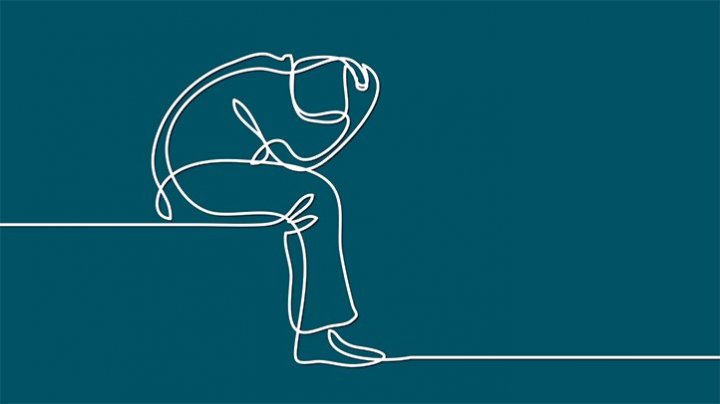





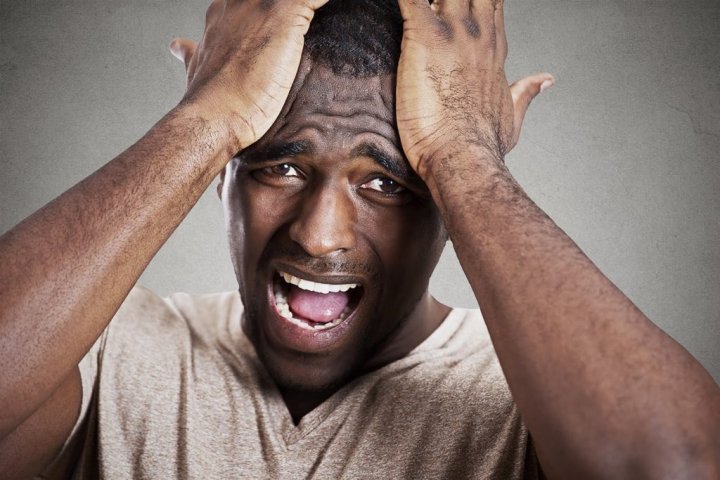


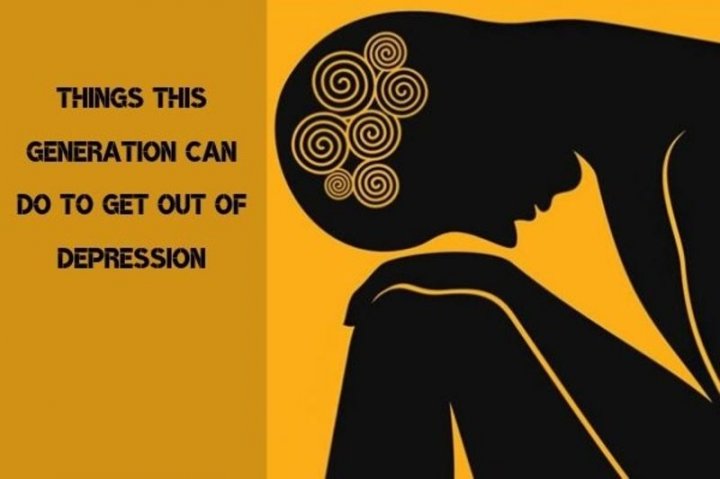







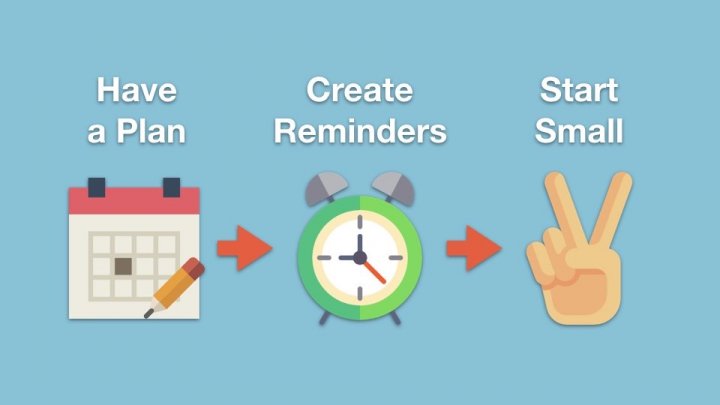


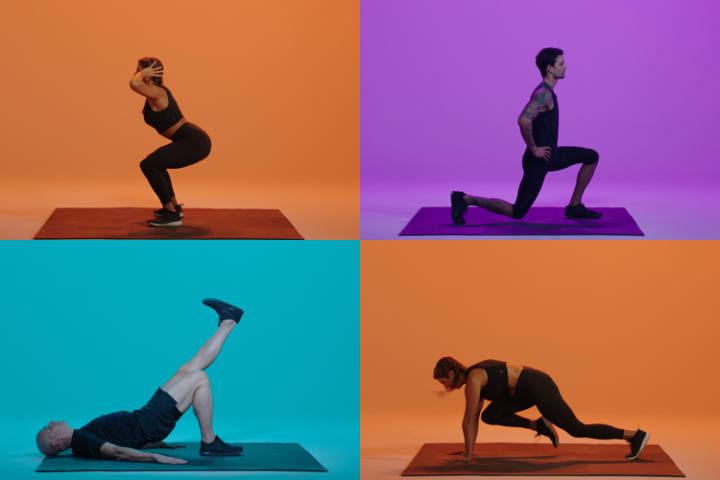


 Highlight the Best Facets of Your Incomparable Beauty: Discover the Best Face Highlighter Currently Available in India and Everything You Need to Know About Using Face Highlighters for Maximum Effect (2023)
Highlight the Best Facets of Your Incomparable Beauty: Discover the Best Face Highlighter Currently Available in India and Everything You Need to Know About Using Face Highlighters for Maximum Effect (2023)
 Forget the Blemishes and Get that Picture Perfect Flawless Radiance on Your Face: Check out the Best Foundations for Oily Skin Currently Available in India and Everything You Need to Know About Makeup Foundations (2023)
Forget the Blemishes and Get that Picture Perfect Flawless Radiance on Your Face: Check out the Best Foundations for Oily Skin Currently Available in India and Everything You Need to Know About Makeup Foundations (2023)
 Make Your Presence Felt Wherever You Go: Discover the Best Perfumes Under 2000 for Both Men and Women to Announce Your Arrival and Make Any Occasion Memorable (2023)
Make Your Presence Felt Wherever You Go: Discover the Best Perfumes Under 2000 for Both Men and Women to Announce Your Arrival and Make Any Occasion Memorable (2023)
 Protect Your Oily Skin from the Harmful Rays of the Sun: Discover the Best Gel Based Sunscreens for Oily Skin and Everything You Need to Know Before Buying One (2023)
Protect Your Oily Skin from the Harmful Rays of the Sun: Discover the Best Gel Based Sunscreens for Oily Skin and Everything You Need to Know Before Buying One (2023)
 Minor Blemishes and Wrinkles Affecting Your Confidence? Check out the Best BB Creams to Conceal Your Worries and Nourish Your Skin to Restore the Healthy, Radiant and Glowing Complexion Back Again (2023)
Minor Blemishes and Wrinkles Affecting Your Confidence? Check out the Best BB Creams to Conceal Your Worries and Nourish Your Skin to Restore the Healthy, Radiant and Glowing Complexion Back Again (2023)
